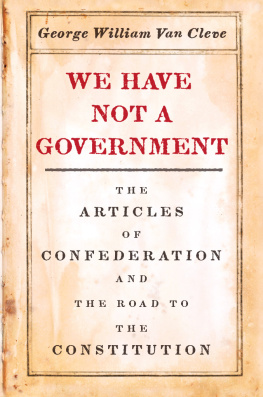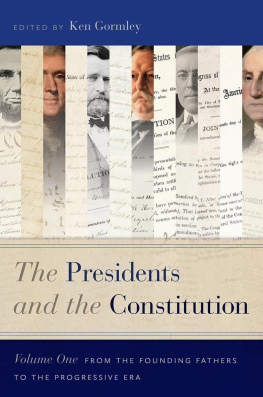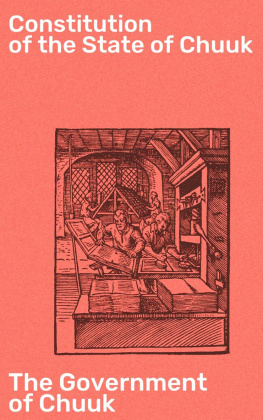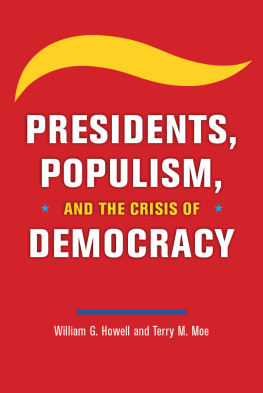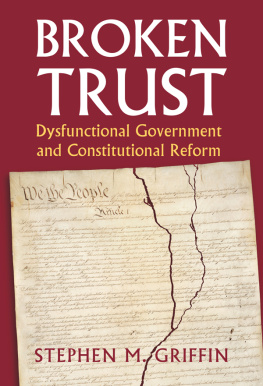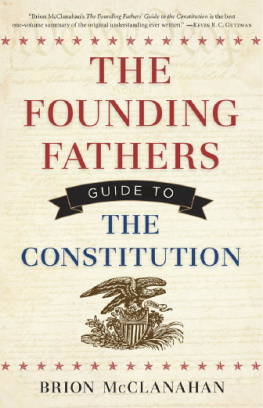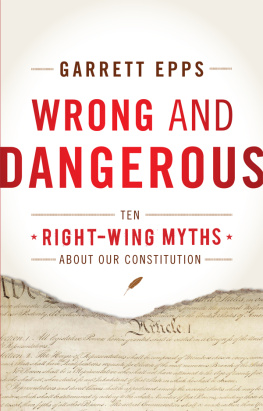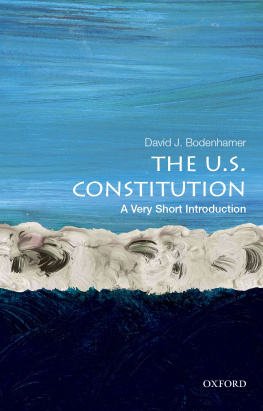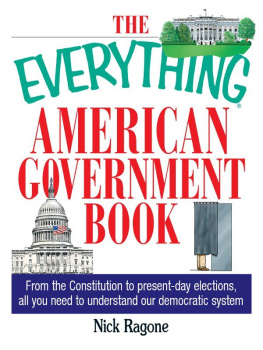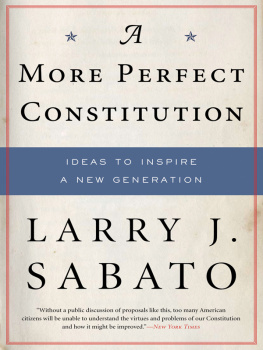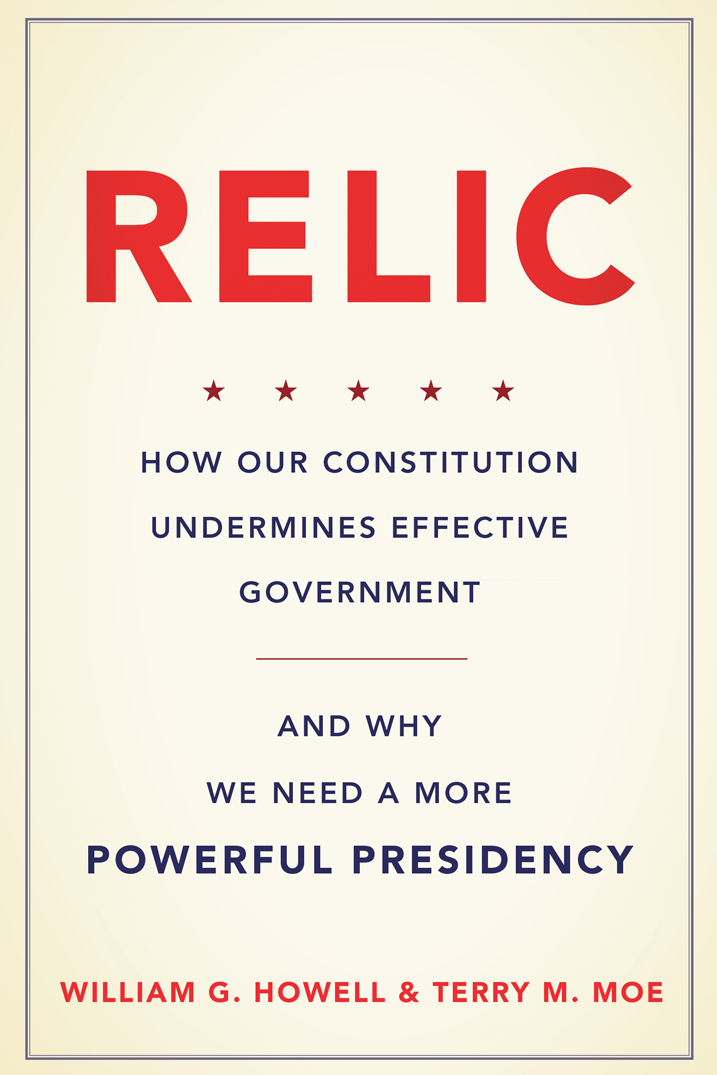More Advance Praise for Relic
Of all the books seeking to explain the decline of our political institutions, this onefrom two of our best presidential scholarsmight be the most radical. The problem, William G. Howell and Terry M. Moe argue, is that the Constitution fundamentally misdesigned Congress. Their cure for this mistake: a president with far greater control over the legislative process. For a daring argument about the future of American government, heres your book.
RICHARD H. PILDES, Sudler Family Professor of Constitutional Law, New York University School of Law
Marshaling an institutional imagination, Relic urgently contends that the Constitution should be revised to confer fast-track powers on presidents to help American democracy successfully address our most pressing problems. Especially for those of us wishing to fortify Congress, this provocative call for a more formidable presidency offers a strongly argued challenge. Let the debate begin!
IRA KATZNELSON, Ruggles Professor of Political Science and History, Columbia University, author of Fear Itself: The New Deal and the Origins of Our Time
Timely, accessible, and provocative, Relic is essential reading for scholars, policymakers, and ordinary citizens concerned about whether their government is up to emerging challenges like global terrorism, rising inequality, and climate change.
ERIC PATASHNIK, professor of public policy and politics, University of Virginia, and author of Reforms at Risk
Thinking constitutionally, Howell and Moe serve up a provocative and thought-provoking account of the major causes of our present discontents. Clearly written and engagingly presented, Relic promises to advance a badly needed conversation about how Congress and the President can constructively engage each other.
SIDNEY M. MILKIS, White Burkett Miller Professor, University of Virginia


Copyright 2016 by William G. Howell and Terry M. Moe
Published by Basic Books,
A Member of the Perseus Books Group
All rights reserved. Printed in the United States of America. No part of this book may be reproduced in any manner whatsoever without written permission except in the case of brief quotations embodied in critical articles and reviews. For information, contact Basic Books, 250 West 57th Street, 15th Floor, New York, NY 10107.
Books published by Basic Books are available at special discounts for bulk purchases in the United States by corporations, institutions, and other organizations. For more information, please contact the Special Markets Department at the Perseus Books Group, 2300 Chestnut Street, Suite 200, Philadelphia, PA 19103, or call (800) 810-4145, ext. 5000, or e-mail .
Designed by Janelle Fine
Library of Congress Cataloging-in-Publication Data
Names: Howell, William G., author. | Moe, Terry M., author.
Title: Relic: how our constitution undermines effective government, and why we need a more powerful presidency / William G. Howell, Terry M. Moe.
Description: New York: Basic Books, 2016. | Includes bibliographical references and index.
Identifiers: LCCN 2015048073 (print) | LCCN 2016001346 (ebook) | ISBN 9780465098583 (ebook)
Subjects: LCSH: Executive powerUnited States. | United States. Constitution. | United StatesPolitics and government. | BISAC: POLITICAL SCIENCE / Government / National.
Classification: LCC JF251 .H67 2016 (print) | LCC JF251 (ebook) | DDC 320.973dc23
LC record available at http://lccn.loc.gov/2015048073
10 9 8 7 6 5 4 3 2 1
For Marcy and Betsy
who anchor our lives and fill them with love
Table of Contents
Guide
Contents
American government is dysfunctional, and anyone tuned in to politics sees evidence of it every day. As a decision-maker, Congress is inexcusably bad. It is immobilized, impotent, and utterly incapable of taking responsible, effective action on behalf of the nation.
So why is this happening? The most common view is that Congresss problems are due to the polarization of the Republican and Democratic Parties over the last few decades. By this rendering, if the nation could just move toward a more moderate brand of politicssay, by reforming primary elections or campaign financeCongress could get back to the way it functioned in the good old days, when it (allegedly) did a fine job of making public policy. And then all would be well.
But this just isnt so. Polarization has surely been detrimental to American government. Yet even if the political conditions of the good old days could somehow be re-created, it is wrong to think that Congress would then function admirably. The brute reality is that the good old days were not good. With relatively few exceptions, Congress has always been incapable of crafting effective policy responses to the nations problems.
Congresss most fundamental inadequacies are not due to polarization. Nor are they of recent vintage. They are baked into the institution. Congress is an irresponsible, ineffective policymaker largely because it is wired to be that wayand its wiring is due to its constitutional design. The Constitution ensures that members of Congress are electorally tied to their local jurisdictions, that they are highly responsive to special interests and narrow constituencies, and that these forceswhich we will refer to, summarily, as parochial forcesprofoundly shape their approach to policy. Congress as a whole reflects the parochialism of its members. It is not wired to solve national problems in the national interest. It is wired to allow hundreds of parochial legislators to promote their own political welfare through special-interest politics. And that is what they typically do.
Much as Congress deserves to be everyones favorite whipping boy, then, its pathologies are not really of its own making. They are rooted in the Constitution, and it is the Constitution that is the fundamental problem. The pathologies that the Constitution creates, moreover, are not limited to Congress. They extend to the entire system of governance. This happens, in no small part, because the Constitution puts Congress right at the center of the system by granting it the authority to make the laws, and its pathologies inevitably infect every other niche and component of government. Congress is not just one of three branches of government. The founders made Congressand all the localism and special interests it channelsthe first branch of government, expecting it to be the most important and consequential, with the second (the executive) and third (the judiciary) fully expected to trail behind.
These system-wide problems are considerably worsened by the very hallmark of the Constitutions approach to democratic governance: its much-celebrated separation of powers. The founders embraced separation of powers some 225 years ago, when the nation was a simple agrarian society of roughly four million people. Government was not expected to do much, and the foundersmainly worried about avoiding tyranny of the majority and other populist excessespurposely designed a government that couldnt do much. Separation of powers was their structural means of accomplishing that. Its myriad checks and balances made governmental action very difficult and thus stacked the deck in favor of the status quo.


